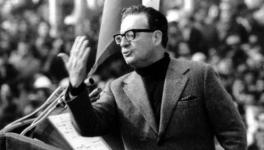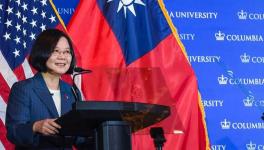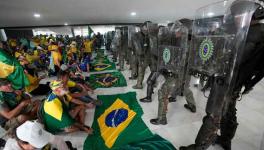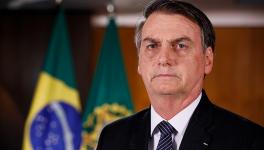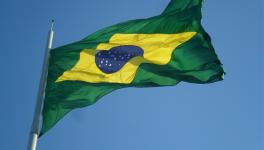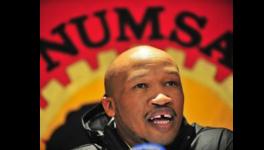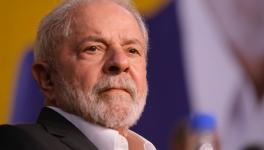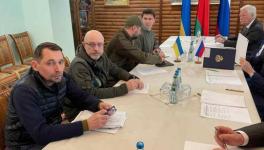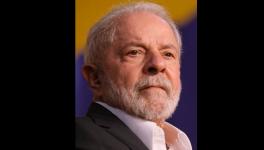Mario Abdo Benítez wins the Presidency in Paraguay
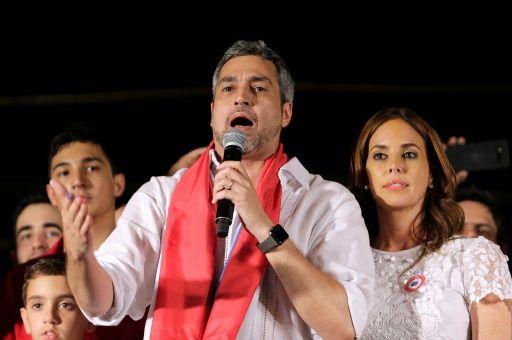
Image Courtesy: Reuters
The candidate of the ruling National Republican Association-Colorado Party, Mario Abdo Benítez, won the presidential elections held this Sunday in Paraguay, reported the Superior Court of Electoral Justice (TSJE).
With 96% of the polling stations, Abdo Benítez won more than 46% of the votes, while the other candidate Efraín Alegre obtained more than 42%.
According to the electoral body, the level of participation in elections was more than 60%.
“I want to greet those who have placed their confidence in our project through their votes. Thank you for dreaming with us for a better Paraguay” said Abdo Benítez in his first message to his supporters.
“The people voted for the unity and not for the division of Paraguay. As of today, the division is over. The people spoke. The debate is over.” he added.
“I can’t help but remember my father, who was a great Colorado” said Abdo Benítez referring to his father, who was the private secretary of the dictator Alfredo Stroessner for many years.
More than 4 million Paraguayans attended the polls to elect their next President, Vice-President, 45 senators, 80 deputies, 17 governors and the same number of departmental councils. 18 legislators were also elected for the Parliament of Southern Common Market (Mercosur).
Elections in Paraguay: five keys to contextualize the elections
Source: Marcha Noticias / April 21, 2018
On Sunday, there were elections in Paraguay and the media siege against one of the most forgotten countries of Latin America suggested a historical account of all its main events, as well as a necessary analysis on what is at stake for the people’s movement. Lucho Baños, international analyst, shared five keys to read this situation.
- Social forces and the country’s project.
The dictatorship of Stroessner was the longest dictatorship of Latin America in the 20th century, supported by an oligarchy formed by the landowners, importer’s bourgeoisie and military leadership formed in a visceral anti-communism and the National Security Doctrine given by the United States. This oligarchy remained in power after Stroessner’s exit from the government: the inheritance of Dictatorship is still very much alive.
In the last decade, there has been pushback, with two social sectors as spearheads in the fight for sovereignty and national development: the urban youth (formed in the students’ movement in 2015) and the peasantry. Land disputes are very intense, especially in the agricultural sector due to the advancement in soy monoculture and the penetration of Brazilian capital. This has been the breeding ground for the increasing presence on the Brazilian border of the political-military organization Paraguayan People’s Army (EPP).
- The Parliamentary coup of 2012.
Two parties, the Colorado and the Liberal, divided the State during the 20th century. The Colorado (party to which Stroessner belonged) was in government for an uninterrupted period of 60 years.
That continuity was broken in 2008 by an alliance between a priest Fernando Lugo from the liberation theology tendency with a little support party and with sectors of the Liberal Party. The same sectors who in 2012 deposed Lugo (for carrying out an agrarian reform and promoting continental integration) and later put him on a political trial in the Parliament and named one of his own as president (his former Vice President Federico Franco). A similar maneuver that happened in Brazil with Dilma and the Brazilian Democratic Movement party.
After a interim presidency, entrepreneur Horacio Cartes became president, who is a representative of oligarchic interests and made his fortune to the eaves of Stronism and was accused of links with smuggling and other illegal activities.
- Peculiarities of the Paraguayan electoral system.
There is no possibility of presidential re-election, either consecutive or non-consecutive. There is also no second presidential round: the most voted candidate will be made president in August.
The images that went around the world last year, of the protesters burning the Congress, were in response to an initiative of President Cartes to reform the Constitution and permit re-election, a proposal that divided all the parties (both traditional and alternative) in favor or against it. Lugo, one of the most popular and best positioned political figures, was among those who supported the reform, because it opened up the possibility of re-running. That produced a tsunami in his own sector, the Frente Guasú (Broad Front, in Guaraní).
The reform failed because of the transversal opposition it provoked, but it caused damages and realignments within the various political forces.
- The parties in the electoral scenario
There are two candidates with the possibility of reaching presidency.
In the primaries of the Colorados, another admirer of Stroessner, Mario Abdo Benítez won.
The Liberal Party reached an electoral agreement with the Frente Guasú de Lugo, which gives them options to confront with certain possibilities of success over the Colorados. Efraín Alegre will be the presidential candidate and the entrepreneur and communicator Leo Rubin (proposed by FG) will accompany him in the winning formula.
Those forces will also be the ones to compete for as many seats in the two Chambers of Congress.
Outside the two major electoral pacts, with a considerable capacity of mobilization and rooting in the rural environment, is the Democratic Congress of the People, where the Communist Party together with other political forces and mass organizations, is articulated. It is called to boycott the elections because it considers that there are no guarantees for participation.
- What is at play on Sunday in Paraguay?
In case the Colorado Party wins, reinforcement and deepening of the block’s offensive in the open power in 2012 (and at the international level an unrestricted alignment with the United States and Paulist oligarchy.)
In case, all goes well with the win, there is some oxygen for the democratic and people’s forces of the country and Latin America.
Get the latest reports & analysis with people's perspective on Protests, movements & deep analytical videos, discussions of the current affairs in your Telegram app. Subscribe to NewsClick's Telegram channel & get Real-Time updates on stories, as they get published on our website.









